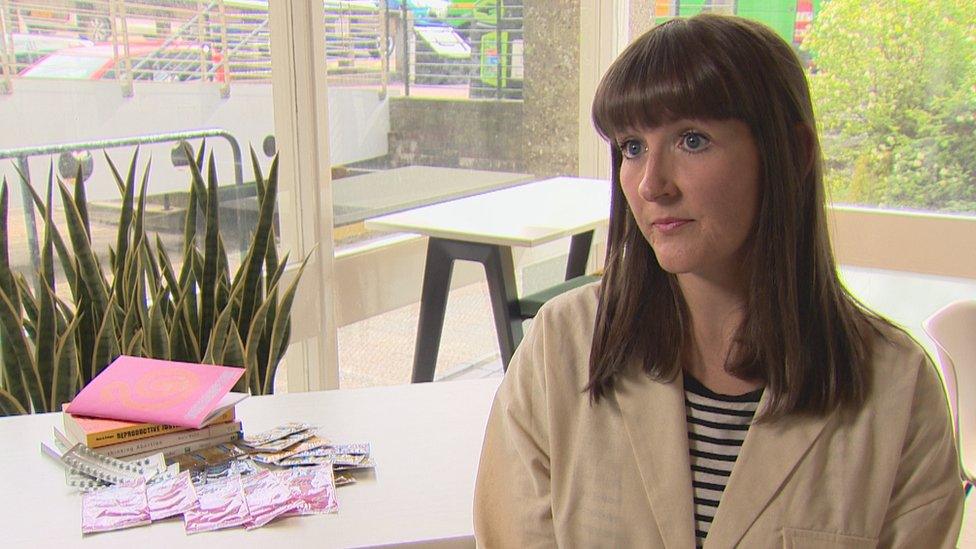Dundee University researchers start work on male pill
- Published
Researchers are using robots to test thousands of drug combinations
In a laboratory in Dundee, two huge robotic arms test thousands of chemical compounds looking for a drug to stop sperm in its tracks.
"Sperm move very quickly in humans," says Prof Christopher Barratt, head of the Reproductive Medicine Group at the city's university.
"It's the speed of Usain Bolt if you want to get an analogy. And what we're trying to do is get chemicals to stop that type of movement.
So stop them in the starting blocks, rather than letting them get to the 100m line."
The team at the University of Dundee have begun work to develop a male contraceptive pill thanks to a grant of about $900,000 (£716,670) from the Bill and Melinda Gates Foundation.
If successful, it could help to prevent millions of unwanted pregnancies across the world.

The team say a male pill could help to prevent millions of unwanted pregnancies across the world
Prof Barratt believes innovation in this field is long overdue.
"If you look back at the principles of male contraception then the last development was in 1450BC, which is effectively the development of the condom," he says.
"So there's been absolutely nothing for men and that's a key issue if we're trying to deal with many of the issues that face the world."
The two-year project is a collaboration between the university's schools of medicines and life sciences. They hope to find a drug to mimic male infertility.
'Potentially a large market'
Dr Paul Andrews, director of operations at the National Phenotypic Screening Centre, says it could already exist.
"We have to sift through hundreds of thousands of chemicals, some of which might be drugs that are already in patients and where we find new uses for old drugs. Or we might want to find new drugs," he says.
Previous attempts to create a male pill had unwanted side effects and failed to attract the attention of pharmaceutical companies. But Dr Andrews hopes the support of the Gates Foundation might make this research a success.
"Big pharma companies are not interested in this area, even though there's potentially a large market," he says. "And so the Gates Foundation wanted to plug that gap."

Sociologist Kristina Saunders believes attitudes will need to change
The female pill was first made available on the NHS in 1961, revolutionising the lives of women.
Kristina Saunders, a sociologist at the University of Glasgow, believes attitudes will need to change before another major transformation in contraception.
"I don't think it would be as simple as here's this pill or this new contraceptive you can take it," she says. "I think much deeper work needs to be done because these are really ingrained, gendered norms and ideas and expectations around, not just contraceptive use but reproduction more generally.
"So I think conversations need to be opened up within wider society between couples and health care professionals and with service providers.
"And starting with education from a young age to include men and young boys and everybody in discussions around contraceptive responsibility."
The team in Dundee hope to identify a suitable compound within five years. After that, men could start testing the pill.

BBC Crossing Divides

A season of stories about bringing people together in a fragmented world.
- Published1 February 2019

- Published26 March 2019

- Published22 May 2017
